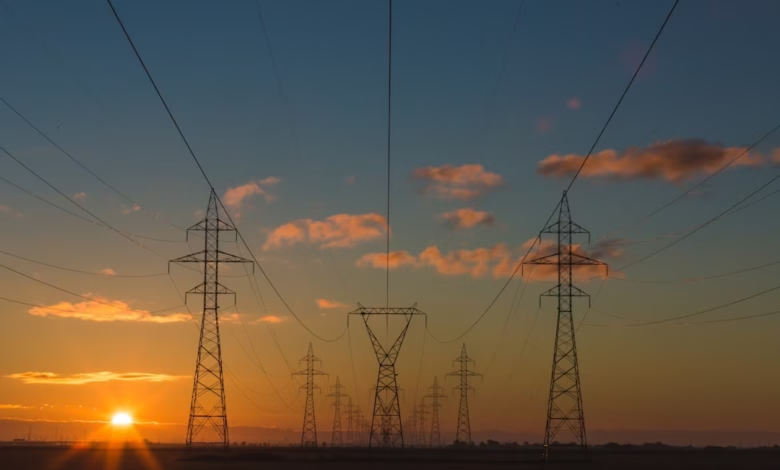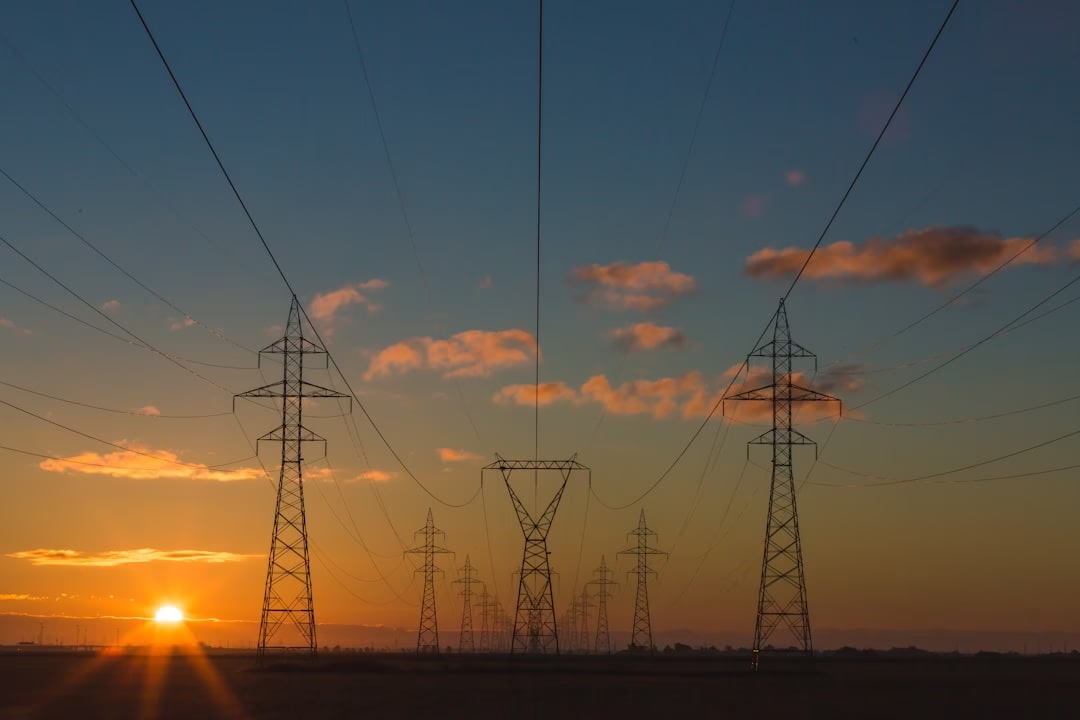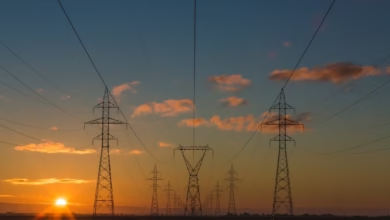Navigating the Future of Energy: The Role of Fossil Fuels and Innovations in Renewable Energy and Efficiency

As the world grapples with the pressing challenges of climate change and energy security, the role of fossil fuels—oil, coal, and natural gas—remains a cornerstone of global energy markets. Despite the growing emphasis on renewable energy sources like solar power, wind energy, and hydropower, fossil fuels continue to dominate production and consumption patterns across nations. In this article, we will explore the intricate dynamics of fossil fuel production and its implications for energy policy and economics. We will also examine the energy transition strategies required to balance these traditional energy sources with innovative solutions in renewable energy and nuclear energy. Furthermore, we will delve into advancements in energy efficiency and storage technologies, which are pivotal in creating a sustainable future amidst the ongoing climate crisis. By understanding these global energy trends, we can better navigate the complexities of energy transportation, investment, and innovation, paving the way for a greener and more resilient energy landscape.
- 1. The Role of Fossil Fuels in Global Energy Markets: Navigating Oil, Coal, and Natural Gas Production and Consumption
- 2. Energy Transition Strategies: Balancing Fossil Fuels with Renewable Energy and Nuclear Energy Solutions
- 3. Innovations in Energy Efficiency and Storage: Paving the Way for a Sustainable Future Amidst Climate Change Challenges
1. The Role of Fossil Fuels in Global Energy Markets: Navigating Oil, Coal, and Natural Gas Production and Consumption
Fossil fuels have long been the backbone of global energy markets, serving as the primary source of energy for industrial, transportation, and residential needs. Oil, coal, and natural gas collectively account for a significant portion of the world's energy consumption, despite the growing emphasis on renewable energy sources and the energy transition towards greener alternatives.
The production and consumption of fossil fuels are deeply intertwined with energy security and economic stability across nations. Oil remains the dominant player in the transportation sector, influencing energy economics and global energy trends. The volatility of oil prices often reflects geopolitical tensions, making energy policy a crucial consideration for governments looking to secure their energy imports and exports.
Coal, once the cornerstone of energy generation, faces declining demand in many parts of the world due to environmental concerns and competition from cleaner energy sources. However, it still plays a vital role in thermal energy production, especially in emerging economies where energy access is paramount. Natural gas, often hailed as a bridge fuel, supports energy efficiency by providing a cleaner alternative to coal while also complementing renewable energy through energy storage solutions and smart grids.
As nations pivot towards greener energy investments, fossil fuels are not entirely phased out; instead, they are being integrated into a broader energy strategy that includes carbon capture technologies and innovations in energy transportation. This transition is crucial in addressing climate change while ensuring energy security and stability.
Moreover, the rise of electric vehicles and advancements in hydrogen energy demonstrate the shift towards more sustainable energy systems. Still, in the face of evolving global energy demands, fossil fuels will likely continue to play a significant role in energy markets. The interplay between fossil fuels and renewable sources such as solar power, wind energy, hydropower, and bioenergy will shape the future landscape of energy R&D and innovation.
In summary, navigating the complex dynamics of fossil fuels in the context of global energy markets necessitates an understanding of their current role while embracing the inevitable shift towards renewable energy solutions. The balance between leveraging fossil fuels for immediate energy needs and investing in sustainable alternatives will define the future of energy consumption and production worldwide.
2. Energy Transition Strategies: Balancing Fossil Fuels with Renewable Energy and Nuclear Energy Solutions
As the world grapples with the pressing issue of climate change, energy transition strategies that balance fossil fuels with renewable energy and nuclear solutions have become vital. The need for a comprehensive approach to energy production and consumption is paramount, as countries strive to meet energy demands while reducing carbon emissions.
Energy markets are evolving, with an increasing focus on energy efficiency and the integration of green energy sources. Fossil fuels, including oil, coal, and natural gas, still play a significant role in global energy supplies, but their dominance is being challenged by renewable technologies such as solar power, wind energy, hydropower, and bioenergy. The transition to renewable energy not only helps mitigate climate change but also enhances energy security by diversifying energy sources and reducing reliance on fossil fuels.
Nuclear energy serves as a crucial part of the energy transition strategy, offering a low-carbon alternative capable of providing consistent thermal energy. As countries invest in new nuclear technologies and improved safety measures, nuclear energy can complement renewable sources, ensuring a stable energy supply. Innovations in energy storage, such as advanced batteries and smart grids, are essential for managing the intermittent nature of renewable energy, allowing for greater integration into the energy system.
Energy policies must support this transition by promoting energy R&D and incentivizing investment in clean energy technologies. For instance, carbon capture and storage (CCS) technologies can help reduce emissions from existing fossil fuel infrastructure, bridging the gap while renewable energy solutions scale up. Furthermore, hydrogen energy is emerging as a versatile energy carrier that can play a critical role in decarbonizing sectors that are hard to electrify, such as heavy transportation.
Distributed energy systems, including local solar and wind projects, empower communities to become energy producers, enhancing energy independence and resilience. As global energy trends shift, countries are also navigating the complexities of energy imports and exports, balancing the need for fossil fuels during the transition while investing in sustainable energy solutions.
Ultimately, the energy transition will require collaboration across sectors and a commitment to energy innovations that prioritize climate objectives. By strategically integrating fossil fuels with renewable energy and nuclear solutions, we can work towards a sustainable energy future that meets the needs of both the present and future generations.
3. Innovations in Energy Efficiency and Storage: Paving the Way for a Sustainable Future Amidst Climate Change Challenges
In the context of climate change challenges, innovations in energy efficiency and storage are crucial for transitioning from fossil fuels to a more sustainable energy future. As global energy trends shift towards renewable energy sources, such as solar power, wind energy, and hydropower, the need for effective energy storage solutions has become increasingly important. Energy storage technologies enable the integration of intermittent renewable energy sources into the energy markets, ensuring a stable and reliable power supply.
One significant advancement in energy efficiency is the development of smart grids, which enhance energy management and distribution. These smart systems optimize energy consumption, reduce waste, and allow for real-time monitoring of energy use. By improving energy efficiency, we can lower our reliance on fossil fuels while promoting energy security and sustainability.
Additionally, energy innovations such as carbon capture and hydrogen energy are paving the way for a cleaner energy transition. Carbon capture technology aims to reduce greenhouse gas emissions from fossil fuel power plants, while hydrogen energy presents a zero-emission alternative for various applications, including transportation and industrial processes. Both technologies play a vital role in mitigating the impacts of climate change.
The growth of electric vehicles (EVs) is another facet of this energy transition. As EV adoption increases, the demand for energy storage solutions, such as advanced batteries, becomes essential. These innovations not only support the shift to green energy but also stimulate energy investments in research and development (R&D) that drive further advancements.
As we navigate the complexities of energy imports and exports, energy economics will dictate how countries develop their energy policies. By focusing on distributed energy resources and enhancing energy efficiency, nations can better align their energy strategies with the goals of reducing fossil fuel consumption and achieving long-term sustainability.
In summary, the innovations in energy efficiency and storage are critical components in addressing climate change challenges. By embracing these advancements, we can foster a sustainable future that minimizes our dependence on fossil fuels and promotes the adoption of renewable energy sources.
In conclusion, fossil fuels—oil, coal, and natural gas—continue to play a significant role in global energy markets, shaping both production and consumption trends. However, as we navigate the complexities of climate change and strive for energy security, it is essential to balance our reliance on these traditional energy sources with renewable energy solutions and nuclear energy options. The ongoing energy transition emphasizes the importance of energy efficiency and innovations in energy storage, paving the way toward a sustainable future.
As we witness advancements in energy technologies such as carbon capture, smart grids, and distributed energy systems, it becomes clear that the path to a greener energy landscape is not only feasible but crucial. Investments in energy R&D will drive the development of renewable sources, including solar power, wind energy, and hydropower, alongside emerging solutions like hydrogen energy and bioenergy.
Embracing these energy innovations will not only help mitigate the impacts of climate change but will also enhance energy economics by reducing dependency on fossil fuels and improving energy exports and imports. As we adapt to global energy trends, it is imperative that energy policies reflect a commitment to sustainability, ensuring that we meet the needs of today while securing a greener, more efficient energy future for generations to come.





